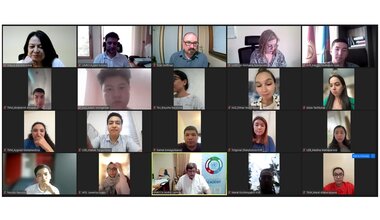SECRETARY-GENERAL’S MESSAGE ON THE INTERNATIONAL DAY OF EPIDEMIC PREPAREDNESS
New York, 27 December 2020
This first observance of the International Day of Epidemic Preparedness falls at the end of a year in which a scenario many had feared came tragically true.
With COVID-19 having now killed more than 1.7 million people, devastated economies, upended societies and exposed the world’s vulnerabilities in the starkest ways, the value of health emergency preparedness has hit home like never before. As we strive to control and recover from the current pandemic, we must think about the next. Unfortunately, it is easy to imagine a virus just as infectious but even more lethal.
We can already draw many lessons from the experiences of the past year.
Preparedness is a sound investment, costing far less than emergency expenditures. Societies need stronger health systems, including universal health coverage. People and families need more social protection. Communities on the frontlines need timely support. Countries need more effective technical cooperation. And we need to pay greater attention to the encroachment of people and livestock into animal habitats; 75 per cent of new and emerging human infectious diseases are zoonotic.
Across this work, science must be our guide. Solidarity and coordination are crucial, within and among countries; no one is safe unless all of us are safe.
The United Nations system, including the World Health Organization, is strongly committed to supporting Governments and all partners in strengthening epidemic preparedness as a crucial part of our broader work to build a healthier world and achieve the Sustainable Development Goals.
This International Day falls on the birthdate of Louis Pasteur, the French biologist responsible for ground-breaking work on vaccinations. In honouring his work, I salute today’s medical professionals, front-line personnel and essential workers who have carried the world through this emergency with such remarkable commitment. As we recover from the pandemic, let us resolve to build up our prevention capacities so that we are ready when the world faces the next outbreak
 UN
UN




